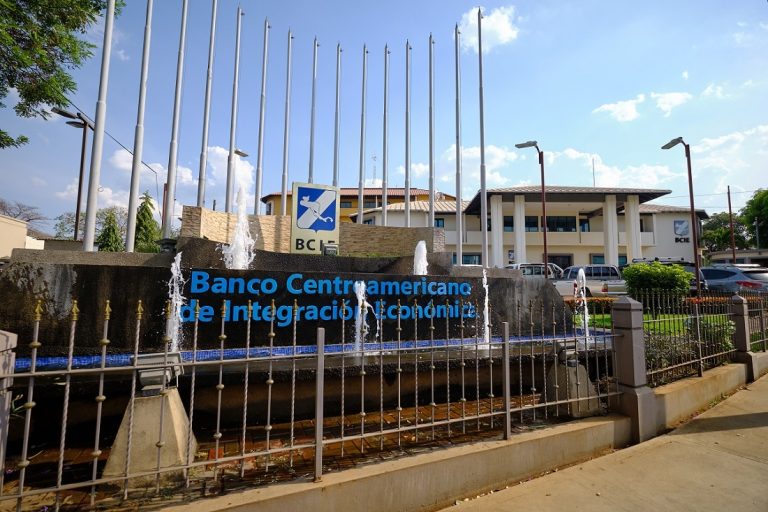16 de diciembre 2021

Children of Exile: The Births “Sowing Hope” in the Camp of Nicaraguan Farmers

PUBLICIDAD 1M
PUBLICIDAD 4D
PUBLICIDAD 5D
Bank pledges independent oversight and audit, and mechanism to report ethical violations or non-compliance

Fachada de la sede del BCIE en Managua. Foto: Carlos Herrera.
On Monday, true to its policy of ‘if you are a reliable payer -and a good executor- I do not care about your reputation,’ the Central American Bank for Economic Integration (CABEI), approved a loan to the Ortega government of US $382.6 million for road construction and improvement.
Since the international community began to turn its back on the Ortega regime, accused of crimes against humanity with 355 documented murders, CABEI became the main source of capital for the dictatorship. Between January 2017 and June 2021, it approved projects for $2.289 billion dollars.
Although supposedly tied to road construction, this credit approval grants flexibility to the management of its budget, allowing the dictatorship to continue consolidating its discourse of normality.
With this new loan, the amount committed in five years rises to $2.671.6 billion. The authorities of the Bank, headed by Honduran Dante Mossi, have responded to the criticism of those who question them for continuing to finance the dictatorship, with the argument that they do not include political elements when evaluating a request. Additionally, since Central America -and other countries- are the owners of the Bank, it is up to them to make these assessments when deciding each loan.
The press release published by the bank to announce the approval of the loan reads “CABEI takes measures to ensure due diligence at all stages of its projects.”
“In this case, the projects will be carried out in accordance with CABEI’s or The World Bank’s procurement policies, as applicable; and includes the hiring of an independent oversight and audit for the program, allowing close and continuous monitoring by internal and external control authorities,” the publication continues.
“Similarly, CABEI adopted zero tolerance for “prohibited practices” as a basic principle, referring to unethical situations or regulatory non-compliance. This way they maintain an available means of denunciation,” the bank added.
The honeymoon between CABEI and Ortega (or between Mossi and Ortega), seemed to be temporarily suspended, when the directors voted in favor of postponing the inauguration of the new CABEI building, built at a cost of 16.5 million dollars, and to move to the virtual headquarters in Tegucigalpa the upcoming meeting scheduled to be held in Managua. However, the loan was approved during the first of the virtual sessions scheduled to take place between December 13 and 15.
It is expected that the loan will be used to build and improve 185.2 kilometers of roads in nine municipalities in the Pacific and two in the South Caribbean, divided into four sections. According to CABEI it will benefit some 534,820 citizens. It will start with the improvement of 119.5 kilometers of roads in San Juan del Sur, Tola, Jinotepe, Diriamba and San Rafael del Sur, to build the La Costanera coastal highway.
In the west, the plan is to build a Corinto bypass, extending it by 8.1 kilometers. In Wapi-El Tortuguero they will re-condition 45.9 kilometers of roads, and 11.8 kilometers of roads will be improved between La Calamidad and Empalme Masigüe in Camoapa.
The initiative includes plans to build 16 bridges, with a cumulative extension of 1052.5 linear meters, to be executed by the Ministry of Transport and Infrastructure (MTI). The loan has a term of 15-years, with a three-year grace period.
This article was originally published in Spanish in Confidencial and translated by Havana Times
Archivado como:
PUBLICIDAD 3M
Periodista nicaragüense, exiliado en Costa Rica. Durante más de veinte años se ha desempeñado en CONFIDENCIAL como periodista de Economía. Antes trabajó en el semanario La Crónica, el diario La Prensa y El Nuevo Diario. Además, ha publicado en el Diario de Hoy, de El Salvador. Ha ganado en dos ocasiones el Premio a la Excelencia en Periodismo Pedro Joaquín Chamorro Cardenal, en Nicaragua.
PUBLICIDAD 3D